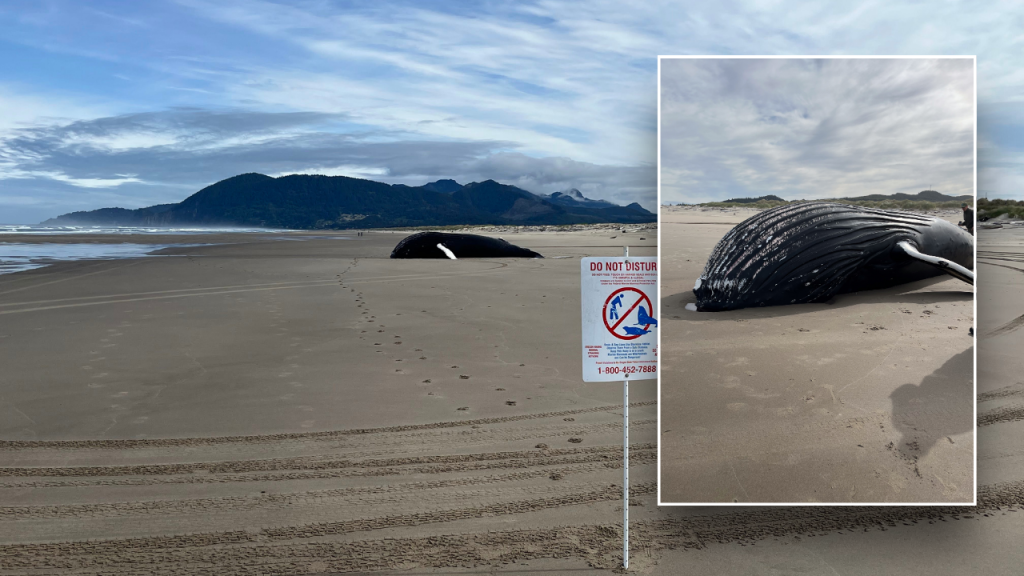A dead humpback whale was found washed ashore at Nehalem Bay State Park in Tillamook County, Oregon. Officials described the whale as a “young male” measuring around 34 feet long. The National Oceanic and Atmospheric Administration and Oregon Parks and Recreation Department are working to determine the cause of death, as there was no obvious reason upon initial inspection. Oregon State Parks noted that the whale was found near a snowy plover management area, which is a protected nesting ground for a small shorebird called the western snowy plover.
The discovery of the beached whale has brought concerns about the disposal process, as authorities often use explosives to dispose of beached whales due to their slow decomposition process. Whales can take over 50 years to decompose underwater, but this process is sped up on land. Some locals expressed apprehensions over whether the dead whale would be blown up, citing an incident in 1970 when Oregon officials exploded a beached whale in Florence, leading to parts of the carcass falling on onlookers and their cars. Authorities have not yet indicated what disposal method will be used for the humpback whale found in Nehalem Bay State Park.
The Oregon Coast has been experiencing tar washing ashore in recent weeks, prompting concerns about the connection with the dead humpback whale. Oregon State Parks clarified that there was no obvious link between the tar and the deceased mammal. The beach where the whale was found is a protected nesting area for snowy plovers, meaning that there is restricted access from the dry sand area, with signs posted to keep pets away. The Oregon Parks and Recreation Department, along with the National Oceanic and Atmospheric Administration, are conducting an investigation to determine the cause of death and ensure the protection of the environment and wildlife in the area.
The discovery of the dead humpback whale in Oregon comes amid a series of similar incidents, including two whales washing up in Virginia Beach within days of each other. In another tragic event, a baby right whale died after a ship collision, leaving fewer than 360 of these endangered mammals alive. These incidents highlight the challenges faced by marine wildlife and the importance of conservation efforts to protect endangered species. Authorities are working diligently to understand the circumstances surrounding the death of the humpback whale found in Nehalem Bay State Park and to prevent further harm to marine life in the area.
As the investigation into the dead humpback whale unfolds, authorities are focused on determining the cause of death and ensuring the proper disposal of the mammal to protect the environment and prevent any potential hazards. Given the slow decomposition process of whales, authorities may use explosives to expedite the disposal process, although concerns have been raised over the safety of this method. The incident serves as a reminder of the importance of wildlife conservation and the need to safeguard marine ecosystems to prevent harm to endangered species like humpback whales. By conducting a thorough investigation and taking appropriate action, authorities aim to mitigate the impact of this tragic event and uphold their commitment to environmental preservation.


